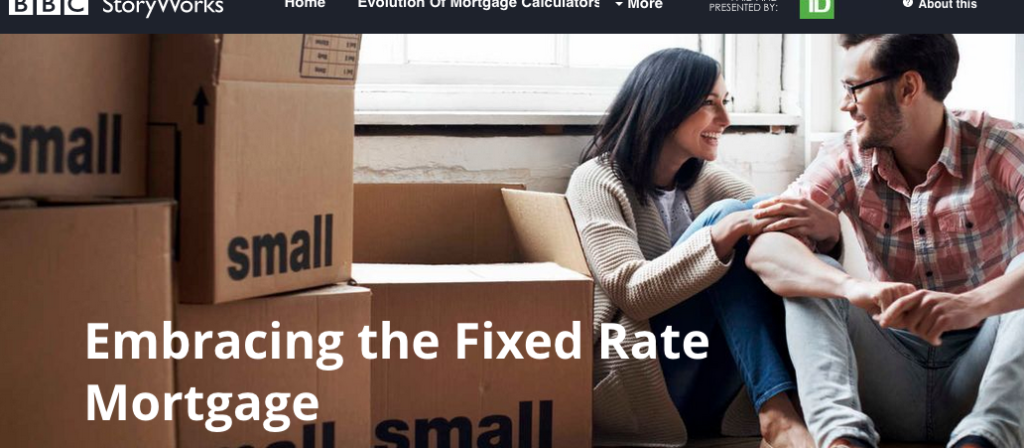The third article of six planned to appear on the BBC StoryWorks website in Canada has now been published. You can find it by clicking on the highlighted headline here: Embracing the Fixed Rate Mortgage.
As explained in the first instalment, the articles look at Covid-19 and the impact on the real estate and mortgage industry. The articles appear weekly and run into November. The last three articles will look at the case for locking the investing experience following Covid, optimum strategies going forward and close with retirement strategies in the age of Covid.
In the second article of the series we made the case for why you might want to go with a variable rate mortgage and keep your interest costs as low as possible at today’s historically rock-bottom rates. In this article — written with my input and sponsored by TD Bank — we take the opposite view and present the argument why you might consider locking in to the safety and security of a 5-year fixed rate mortgage.
After all, there’s a lot more room for rates to rise than fall from here, and staying variable may be especially stressful for those with larger mortgages. True, you may be able to save a few basis points in interest charges by staying short but at what cost in anxiety and sleepless nights?
Variable mortgage rates remain a tad lower than fixed but is it worth taking a gamble with variable to get the absolute lowest rate or is it better to choose the safety and security of a fixed rate mortgage? Today’s record low 5-year fixed rates has made Lethbridge-based fee-only financial planner Robb Engen (and regular Hub contributor) rethink his past strategy of staying variable. He points out any upside with variable rates is largely gone now as the prime rate is likely as low as it’s going to get.
Both variable and fixed rates may be under 2% these days
“Fixed and variable mortgage interest rates [for the same term] are pretty comparable these days,” says fee-only financial planner Jason Heath, managing director of Toronto-based Objective Financial Partners.
Wealth advisor Matthew Ardrey, vice president of Toronto-based TriDelta Financial Partners, sees the difference in monthly payments between variable the fixed rate mortgages as the cost of “insurance” you pay to get rate certainty over the next five years.
Prepayment charges also need to be factored in: people focused solely on rates ignore potential charges to their detriment. Charges to break a mortgage are often the greater of three months’ interest or an interest rate differential amount, Heath says. Meanwhile, variable rate mortgage prepayment charges are usually just three months’ interest, which often results in a lower charge.
Fixed rate mortgage penalties are often the greater of 3 months’ interest and an IRD, Heath says. He recommends reading the fine print both before you commit to a mortgage and definitely before you break a mortgage. That’s when it can be helpful to use tools such as TD’s Mortgage Affordability calculator. By using it and other similar ones, you can see how much house you can comfortably afford and how much risk you want really want to take on.




if interest rates go negative there’s a chance the variable will fall even more.